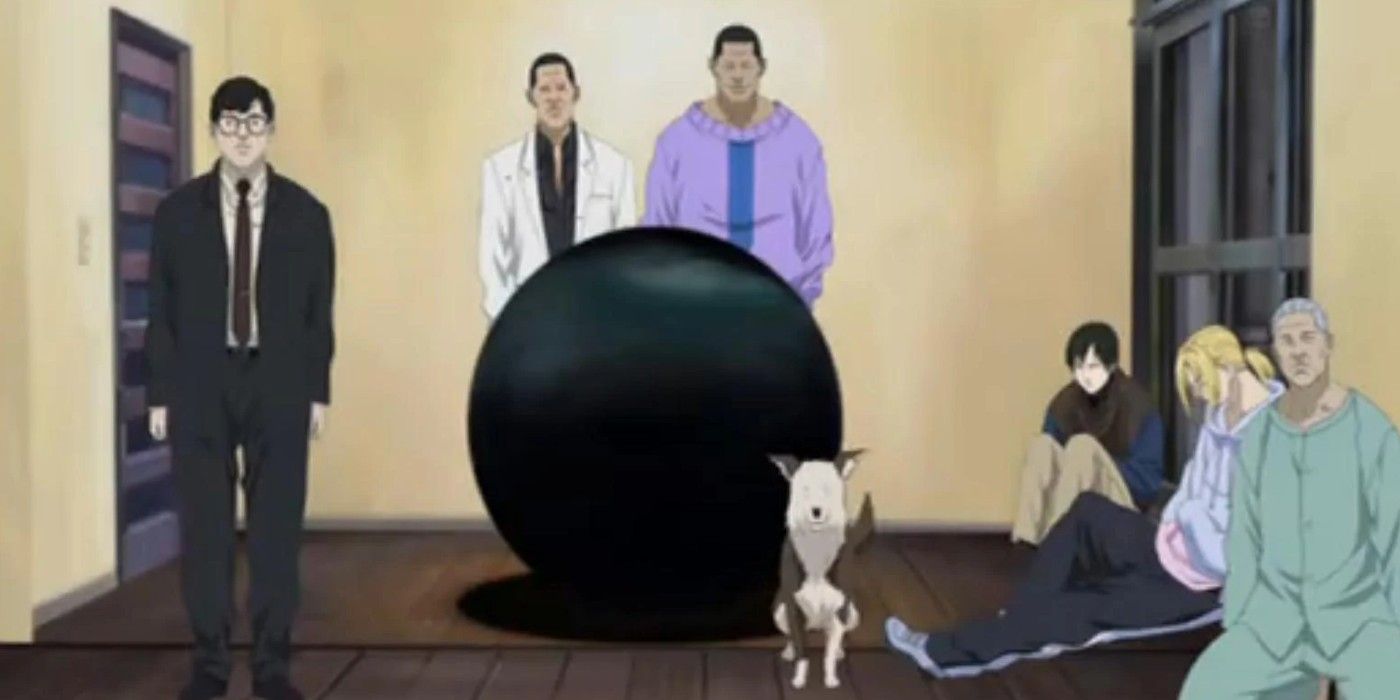The Gantz manga by Hiroya Oku told a story of futuristic technology that altered the fabric of known reality, the lengths elite figures in society would go in preparation of an alien invasion and the diversity of human behavior when thrown into a simulated-like contest of alien hunting. While the beloved manga ended in 2013, some of its most complex ideas are becoming more prevalent than ever.
As real-life technology advances, some of the more radical creations in Gantz seem within the boundaries of possibility -- the skintight bodysuit already has a real-life counterpart in the form of the Powered exoskeleton in development. The epitome of the Gantz technology -- which humanity would crave more than any other -- is the Black Sphere revival system. With the advancement in virtual reality and expectations of future capabilities in the field, such a notion could be within human reach. However, the question is not only in the possibility, but how the world would be affected by such Godly power.
How Gantz Explores the Idea of Reincarnation
Gantz's Black Sphere is developed from technology given to humans by an alien race who decided to help the Earth remain under human rule. While there is no hidden alien technology -- at least within public knowledge -- to enhance the progression of humankind's advancement into greater science fiction-like creations, the theory of Brain Emulation is already being observed with the testing of animal brains. The idea to map out the brain to the point of retaining long-term memory and sentience would, theoretically, recreate a person’s sense of self within a virtual reality world.
The connection that Brain Emulation and virtual reality have to the Black Sphere is the ability to recreate a human being from scratch. In the Room of Truth near the end of Gantz, the two God Aliens explain the process in which a human can be formed through the basic composition of the human body. To show this process, they reform four characters -- Kei Kishimoto, Reika Shimohira, Sei Sakuraoka and Yoshikazu Suzuki -- and destroy them without hesitation.
Though this offers a bleak view of humanity's purpose at first, the ray of hope comes through one last question to the God Aliens. Hyouma Takeda inquires about the human soul, to which the God Aliens explain that it's represented by 21 grams of data. That data is implanted back into the recreated human who is revived, or reborn into a new human in the future.
In the Gantz universe, this occurs in the characters' actual reality rather than a simulation. In the real world, plans are growing for a Metaverse to be an economic and digital representation of the earth. It is possible that the virtual reality existence would one day overtake reality as a location for people to do business, entertain themselves and even consider living a large portion of their lives. Entering the Metaverse through VR is a connection in what the brain perceives while the body remains in its real-world place. If Brain Emulation is implemented, there would be little purpose to retain the flesh and blood of the human body.
Should this ever become the case, then the coding of what makes a human body could be downloaded into a perceivable interpretation of one’s self within a Metaverse reality. The stored memory and sentience could also be uploaded to the recreated body -- similar to the process used in Gantz.
At that point, a person could be recreated repeatedly should their “physical body” be destroyed or deleted -- or even cloned, like Kei Kuruno. As a Metaverse reality takes over, death would have less meaning unless the deceased person was not recreated. Without taking the human soul -- if such a thing exists -- into consideration as Gantz did, is that recreated person really themselves or a string of code made to represent them?
What If Gantz's Technology Was Implemented in Real Life?
The questions of logistics are as vital as the concept of how humans would behave when introduced to reincarnation through code and data. Gantz tackles many issues regarding human psychology when confronted with the opportunity, such as reviving people by gaining enough points through a video game-like contest or the recklessness of surviving mortal wounds as long as the hour-long game comes to an end.
Gantz's Joichiro Nishi is a prime example of how the power would be abused when given the opportunity, with a separation between his sense of self and reality. Of course, Masaru Kato reflects the opposite of that behavior, still seeing life as a precious thing despite the uncomfortable truth of its fragility. With such a possible future, the entire societal understanding of mortality, morality and the objective reality would crumble in the minds of many.
The idea of the Gantz reincarnation system implemented into reality carries the likelihood of destruction to the normality of society as it stands. There are certainly beneficial opportunities to a virtual reality world with such a system in place to ensure the human race's longevity. But if implemented, are humans still really humans -- or simply shadows of the original organic representation of that person’s existence?
Even in Gantz, which uses flesh and blood to reform a human-being, they are still a clone of the original. The original body was destroyed, and it is only the God Aliens' word comparing the human soul to 21 grams of data that implies a particular essence within the body. The human race is still a ways off this kind of technology, but as new advancements break through every day, the possibility of mind uploading and Gantz revival no longer feels so farfetched.




